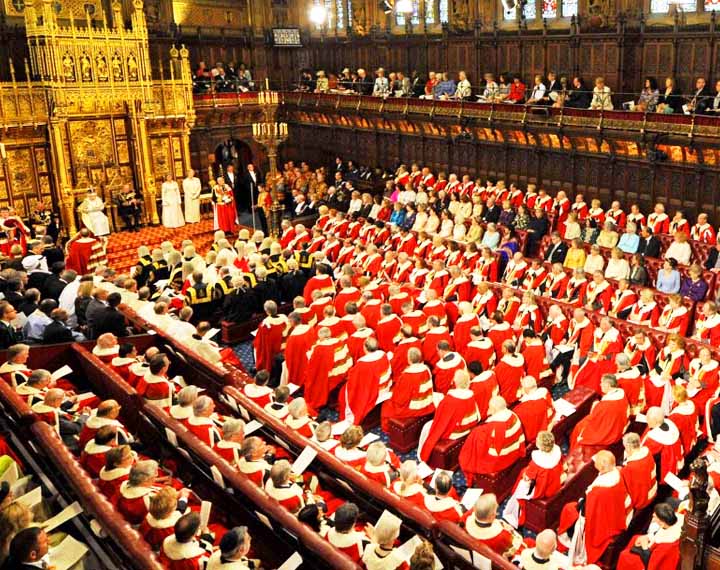Members spend more than half their time in the House considering bills (draft laws). All bills have to be considered by both Houses of Parliament before they can become law. During several stages, members examine each bill, line-by-line, before it becomes an Act of Parliament (actual law). Many of these bills affect our everyday lives, covering areas such as welfare, health and education.
In-depth consideration of public policy
Members use their extensive individual experience to investigate public policy. Much of this work is done in select committees – small groups appointed to consider specific policy areas. In the 2016-17 session, House of Lords select committees produced 41 reports on subjects including the Brexit process with six Brexit reports in six days, the ‘Great Repeal Bill’ and delegated powers, children and the internet and autonomous vehicles. Many select committee meetings involve questioning expert witnesses working in the field which is the subject of the inquiry. These meetings are open to the public.
Members scrutinise the work of the government during question time and debates in the chamber, where government ministers must respond. In the 2016-17 session, members held the government to account with 7,380 oral and written questions and 154 debates on topical issues and public policy ranging from the role of libraries and independent bookshops to the impact of Brexit on the NHS and social care. The public is welcome to visit and sit in the galleries overlooking the chamber during business.
What has the Lords changed?
Making a difference in recent years, the House of Lords has persuaded the government to make policy changes on a diverse range of issues. These include:
- delaying cuts to tax credits until protections for low paid workers are in place
- relocating unaccompanied refugee children from Europe to the UK
- safeguards for immigration-related detention of vulnerable people, particularly pregnant women
- electronic voting for industrial action ballots
- protecting landlord and tenant money in a client money protection scheme for property agents
- banning smoking in cars that carry children
- ensuring that children with special educational needs are afforded the same legal protection in academies as in other mainstream schools.



